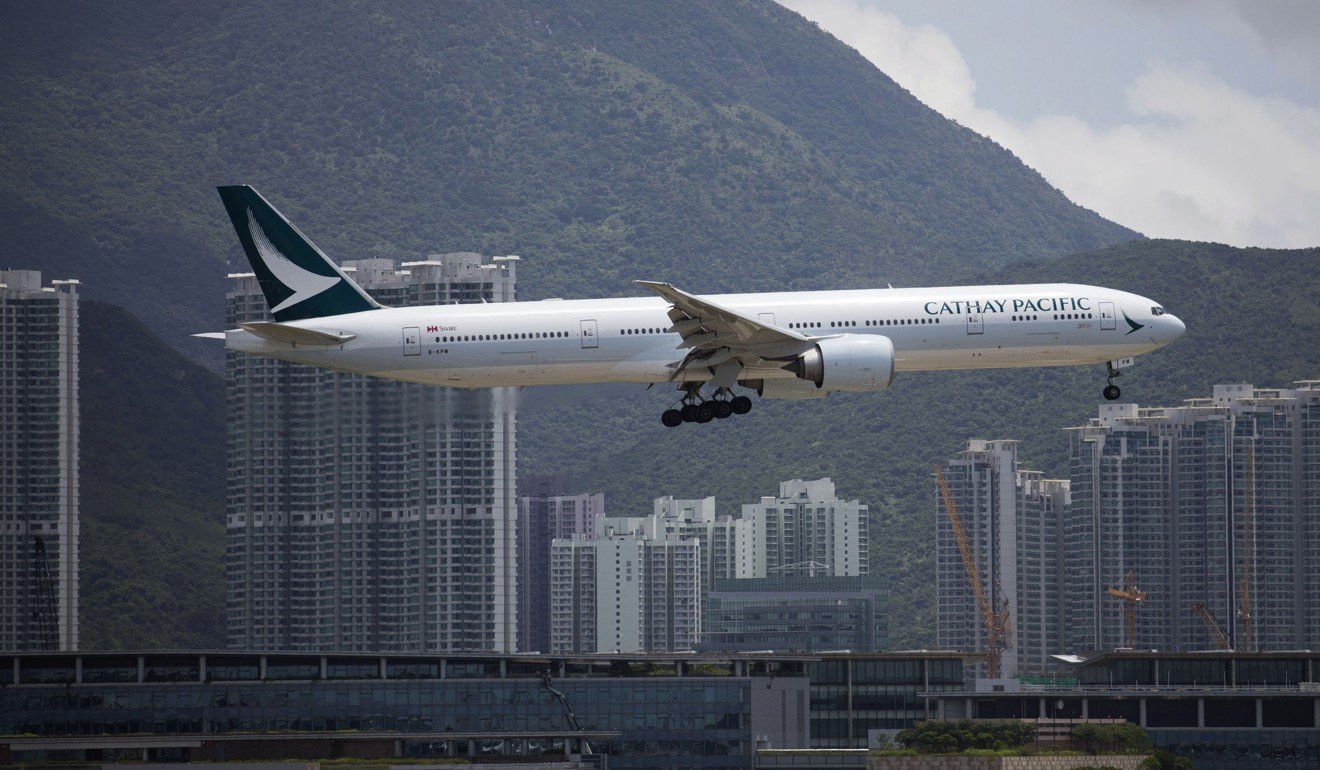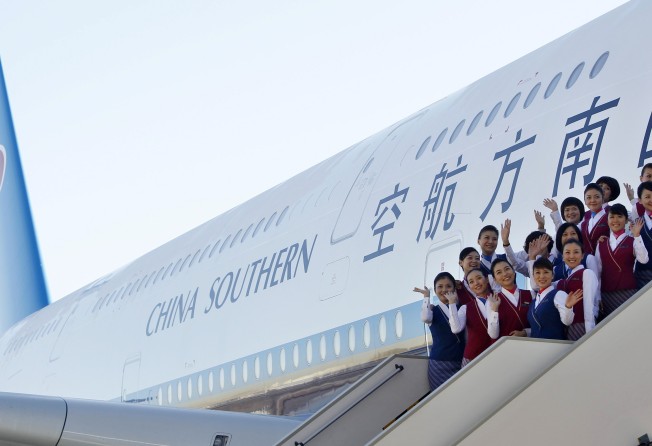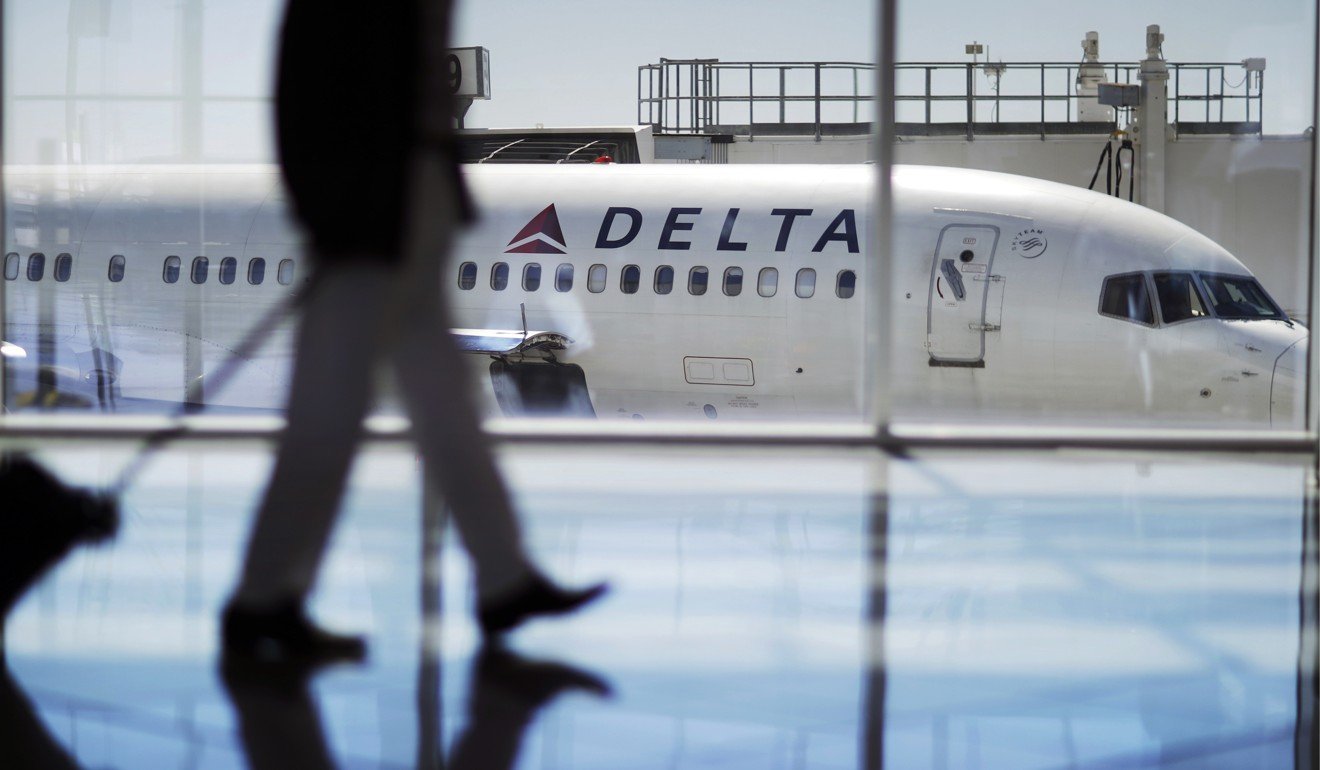
Airline industry braces for China Southern exit from Skyteam alliance, setting up clash with Cathay Pacific
Move out of club in favour of Oneworld by top mainland Chinese airline would have significant impact on Hong Kong’s flagship carrier

The airline industry is bracing for the mainland’s biggest carrier to pull out of one global alliance and join another in a move that could have a significant impact on Hong Kong’s Cathay Pacific group.
“I think we have to accept the reality,” Delta Air Lines’ Greater China chief, Wong Hong, said. “It is more for them to think through and decide.”
Delta is one of the founding airlines of the Skyteam alliance, which China Southern Airlines may pull out of after an internal review of the benefits and impact of a defection.
Most major carriers are signed up to one of three global airline clubs – Skyteam, Star Alliance and Oneworld – and in the two decades of their existence, it has been rare for an airline to leave, let alone defect to another.
With China Southern eyeing membership in Oneworld, which already includes Cathay Pacific and Cathay Dragon, Hong Kong’s flagship carrier could in turn move to Star Alliance. Remaining in Oneworld with China Southern would bring the two carriers’ home bases of Hong Kong and Guangzhou too close together, with destinations they serve overlapping and the airlines competing for the same pool of long-haul travellers.

Joining Star Alliance, the same club as national carrier Air China, would bring Cathay closer to its second-biggest shareholder.
Guangzhou, the main airport for China Southern, is only 120km from Cathay’s home base, and handled 60 million travellers last year, 10 million fewer than Hong Kong saw.
For now, China Southern was still playing an important role, Wong said.
“Until such time … [the move] is a decision China Southern may make at some point in the future. Today, officially, they are with us and they are no different to any other Skyteam partner.”
China Southern president Tan Wangeng was recently quoted as saying the future of its alliance membership was “a sensitive topic”.
In 2014, Oneworld picked up both US Airways and Brazil’s Tam Airlines from Star after they merged with American Airlines and Chile’s national carrier respectively.
Cathay Pacific’s business ties are stronger with Star members Lufthansa, Air China and New Zealand’s national airline. Moving to Star would place it in the same club as Singapore Airlines.
However, the arrival of Oneworld’s Qatar Airways as the third-biggest shareholder in Cathay makes such a step uncertain. Passengers could face significant changes as well.
Travellers’ perks for loyalty after joining an airline’s frequent flier club extend beyond the original carrier, allowing them to earn and spend air miles on partner airlines within their global airline grouping.

Cathay joining another alliance could put at risk the benefits claimed by loyal passengers of Oneworld carriers such as British Airways and Australia’s Qantas.
They now enjoy access to facilities such as premium lounges at Hong Kong International Airport, thanks to Cathay’s Oneworld membership.
Alliances combined with travellers’ habits dictate where they fly, the quality of perks they get from frequent flying and ultimately the cost of air fares.
Torbjorn Karlsson, senior client partner at recruiting firm Korn Ferry’s civil aviation practice in Singapore, said changing alliances was a “very emotional” issue for passengers.
“Global alliances are a true win-win. They give passengers more choices – both in terms of destinations and fares – and increase an airline’s top line and bottom line simultaneously,” he said.
As part of a US$200 million deal this year, American took a 2.76 per cent stake in China Southern. The deal opened the door to an alliance review.
“American’s strategic investment in China Southern was made to build a relationship that will benefit our teams,” Berky Kong, an American spokeswoman, said of its role in encouraging the Chinese airline to switch to Oneworld.
Skyteam said it was “unaware of any plan” for its “long-term and valued partner” to exit.
Perry Cantarutti, the CEO of the alliance, said: “We are of course aware that China Southern has relationships with carriers that are not part of the Skyteam alliance. However, these partnerships fall within the normal network flexibility guidelines.”
Oneworld CEO Rob Gurney said China Southern had not been in contact to discuss membership. The alliance is the only group without a mainland airline, and has made efforts to woo them over.
With plenty at stake, Gurney was keen to stress that Cathay was a “highly valued, outstanding airline”.
Cathay Pacific said it was “committed” to Oneworld and was “proud” to be a founding member, which “has served the airline very well”.
OAG Aviation’s Mayur Patel said airline alliances were due for “dramatic changes”.
“In recent weeks, some major airline CEOs have commented on the changing nature of alliances and that they expect to see evolution in the coming years as the market changes,” he said.
“The big three Chinese airlines are extremely attractive alliance partners for any grouping and the moves we are seeing now are only the beginning of a longer process.”